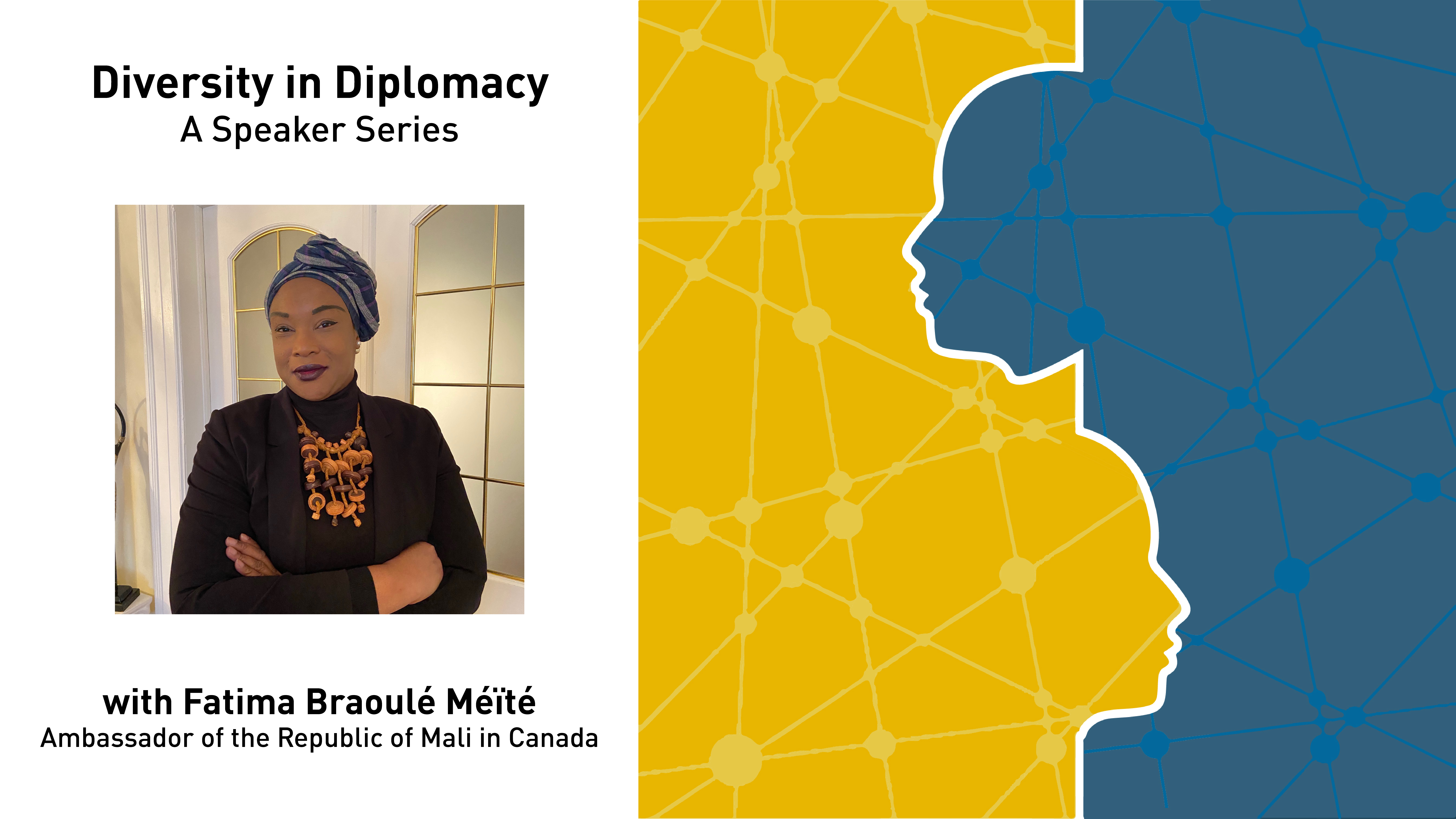African Woman Diplomat: Challenges and Opportunities with Fatima Braoulé Méïté, Ambassador of the Republic of Mali in Canada
UAlberta International - 02 March 2021

On February 25, 2021, the University of Alberta hosted the fourth installment of the Diversity in Diplomacy speaker series, which featured the Ambassador of the Republic of Mali in Canada, Her Excellency Fatima Braoulé Méïté. In an engaging discussion with Dr. Paulin Mulatris, Vice Dean at Campus Saint-Jean, Ambassador Méïté spoke to her experience in diplomacy through the lens of her identity as an African woman. The discussion was followed by a Q&A in both French and English, led by Joannie Fogue Mgamgne, a political science student at Campus Saint-Jean, and Zahro Hassan, a PhD candidate and executive member of the Black Graduate Students’ Association. The Dean of Campus Saint-Jean, Dr. Pierre-Yves Mocquais, introduced the event.
The event was held as part of Black History Month, celebrated and observed annually in Canada in February, and aligned with the BGSA’s conference on The Black Student Experience in Academia, at which the Ambassador was also a participant. The webinar was attended by participants from 12 countries, with viewers from universities, government, foreign service, and organizations around the world. A video of the event is available below.
During the webinar, Ambassador Méïté reflected on her trajectory, discussing the barriers and opportunities that she has encountered during her career, as well as the current global challenges facing Mali and other African nations. She emphasized that, while her own path began with grassroots efforts, there are many avenues to enter the foreign service. Relatedly, the Ambassador noted that, while diplomats share a common goal of maintaining and strengthening the relationship between their country of origin and the host country, each ambassador brings to their work their own diverse experience according to their own background and personality.
The Ambassador also spoke about the importance of restructuring, reappropriating, and deconstructing the dominant discourse of Africa and Afro descendents. She identified ways that Canadian universities can contribute to this discourse, through collaborative activities such as study trips, training, and partnerships with African institutions. She also noted the role that Afro descendents play in rewriting their own stories in order to build the narrative of who they are, who they have been, and who they want to be in the future. She pointed to recent examples of this work in the world at large, in expanded diversity in leadership, such as Kamala Harris, the first female, first black, and first Asian-American VP in the USA, and Michaëlle Jean, the first person of African heritage to hold the position of Canada's Governor General.
In addition to her work as Ambassador, Ms. Méïté is also the Permanent Representative of Mali to the International Civil Aviation organization (ICAO). She graduated from the University of Quebec in Montréal (UQAM) and the State University of New York at Stony Brook. She has a master’s degree in business administration. Previously she worked in public health, where her expertise was to ensure the continuity of Maternal, Neonatal, Infant and Adolescent Health (MNIAH) services and the protection of Orphans and Vulnerable Children (OVC). She has worked as a consultant to the UN as well as for EU and Luxembourg cooperation, covering human rights, the advancement of women, decentralisation, and poverty alleviation.
This episode of the Diversity and Diplomacy series was co-hosted by University of Alberta International, University of Alberta Intersections of Gender, the Peter Lougheed Leadership College, Campus Saint-Jean, and the Black Graduate Students’ Association. In moderated online conversations with Canadian and foreign ambassadors, high commissioners, and consuls general, the series explores diplomatic service through the lens of intersectionality, encourages students from diverse backgrounds to consider diplomatic careers, and leads national and international conversations on the role of equity, diversity and inclusion (EDI) in improving foreign policy outcomes. Find out more about the series and view previous episodes.